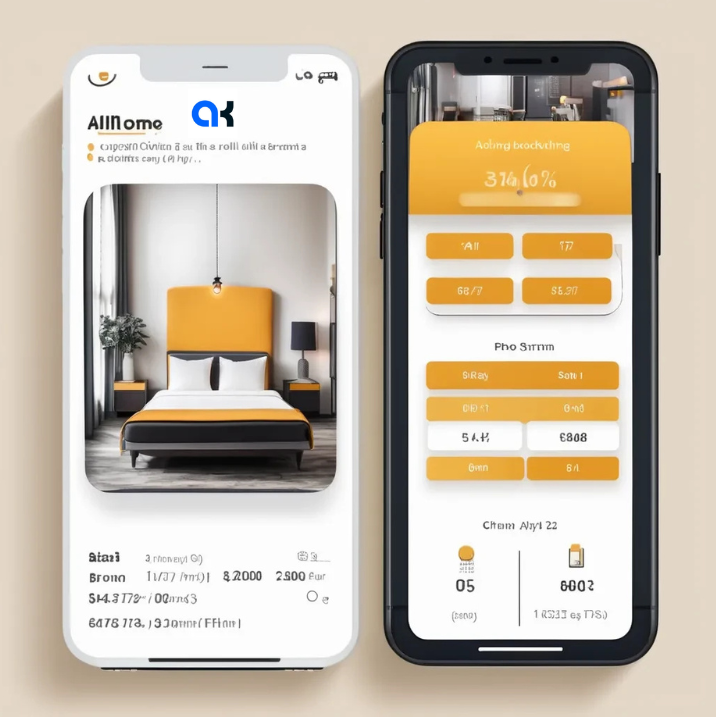
The travel and hospitality industry is rapidly transforming, and room booking apps have become indispensable in 2025. With convenience, personalization, and seamless digital experiences in high demand, creating a room booking app—modeled after platforms like Airbnb—presents a significant opportunity. This guide breaks down everything you need to know to bring your vision to life.
What is an Airbnb Clone?
An Airbnb Clone refers to a room booking platform that emulates the core features of Airbnb, including property listings, search filters, booking systems, and reviews. While inspired by Airbnb, such apps are highly customizable, allowing businesses to cater to specific markets and offer unique user experiences.
Laying the Foundation: Market Research
Conducting thorough market research is the first step to success. Here’s how:
- Define Your Niche: Decide if your app will focus on luxury stays, affordable rentals, or unique experiences like eco-friendly homes.
- Analyze Competitors: Study key players such as Airbnb and Vrbo to understand market dynamics.
- Identify Your Audience: Pinpoint your target users—families, solo travelers, or digital nomads.
- Spot Emerging Trends: Incorporate sustainable travel, AI-based personalization, and other modern innovations.
Essential Features for a Room Booking App
A robust feature set ensures your app stands out. Here’s what to include:
Guest Features:
- User-friendly interface
- Advanced search filters
- Instant booking and payment security
- AI-powered personalized recommendations
- Reviews and ratings
Host Features:
- Tools for property listing management
- Real-time availability updates
- Earnings tracking and analytics
- Direct messaging with guests
Admin Features:
- Content moderation
- Revenue tracking
- Performance analytics
The Technology Stack
To develop a scalable, reliable app, consider the following technologies:
- Frontend: React Native or Flutter
- Backend: Node.js or Django
- Database: PostgreSQL or Firebase
- Cloud Hosting: AWS or Google Cloud
- Payment Gateways: Stripe, PayPal
- AI Tools: TensorFlow for personalization
- Maps: Google Maps API or Mapbox
Development Process
1. Ideation and Planning:
Outline your app’s unique features, define a clear development roadmap, and set a budget.
2. UI/UX Design:
Create an intuitive interface to ensure smooth navigation. Use user feedback to refine designs.
3. Development and Integration:
Build the app incrementally, starting with a Minimum Viable Product (MVP). Integrate essential third-party tools for payments, mapping, and communication.
4. Testing:
Perform rigorous testing to ensure the app functions flawlessly across devices.
5. Launch and Marketing:
Launch the app on major platforms and use targeted marketing campaigns to attract users.
6. Post-Launch Support:
Update features and resolve bugs based on user feedback to maintain app performance.
Challenges and Their Solutions
- Competition: Focus on unique features and niches to stand out.
- Security: Use advanced encryption and regular audits.
- Scalability: Leverage cloud-based solutions.
- User Retention: Offer loyalty programs and personalized experiences.
Cost of Development
The cost to develop a room booking app varies depending on its complexity. Basic apps range from $20,000 to $50,000, while feature-rich apps can exceed $100,000.
Future Trends to Watch
- Sustainability: Promote eco-friendly stays.
- Virtual Tours: Integrate AR/VR for immersive property views.
- Voice Search: Enable bookings through voice commands.
- Blockchain: Use smart contracts for secure transactions.
Conclusion
Building a room booking app in 2025 is an exciting challenge. By leveraging modern technology, understanding market needs, and integrating innovative features, you can create a standout platform that caters to diverse user demands. Whether you’re targeting budget-conscious travelers or luxury seekers, careful planning and execution will ensure your app’s success.


